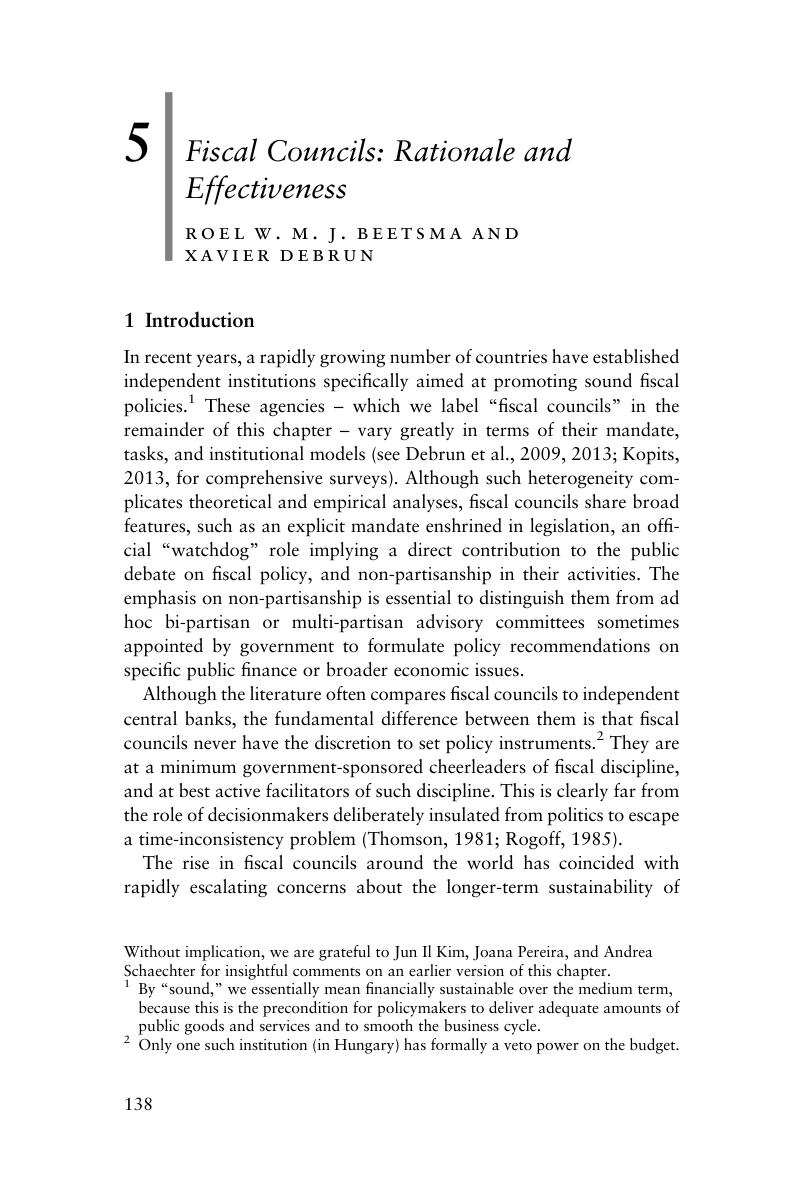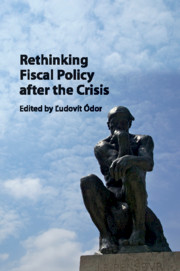Book contents
- Rethinking Fiscal Policy after the Crisis
- Rethinking Fiscal Policy after the Crisis
- Copyright page
- Contents
- Figures
- Tables
- Boxes
- Contributors
- Acknowledgements
- 1 Introduction and Overview
- Part I Frontiers of Fiscal Policy
- Part II Better Institutions for Better Fiscal Policy
- 4 Fiscal Rules in the World
- 5 Fiscal Councils: Rationale and Effectiveness
- 6 Fiscal Discipline in a Monetary Union without Fiscal Union
- 7 Lost in Complexity
- 8 Partial Fiscalization: Some Historical Lessons on Europe’s Unfinished Business
- 9 Managing the Euro-Area Debt Crisis
- Part III New Analytical Perspectives
- Part IV The Comeback of Discretionary Fiscal Policy
- Book part
- Index
- References
5 - Fiscal Councils: Rationale and Effectiveness
from Part II - Better Institutions for Better Fiscal Policy
Published online by Cambridge University Press: 19 May 2017
- Rethinking Fiscal Policy after the Crisis
- Rethinking Fiscal Policy after the Crisis
- Copyright page
- Contents
- Figures
- Tables
- Boxes
- Contributors
- Acknowledgements
- 1 Introduction and Overview
- Part I Frontiers of Fiscal Policy
- Part II Better Institutions for Better Fiscal Policy
- 4 Fiscal Rules in the World
- 5 Fiscal Councils: Rationale and Effectiveness
- 6 Fiscal Discipline in a Monetary Union without Fiscal Union
- 7 Lost in Complexity
- 8 Partial Fiscalization: Some Historical Lessons on Europe’s Unfinished Business
- 9 Managing the Euro-Area Debt Crisis
- Part III New Analytical Perspectives
- Part IV The Comeback of Discretionary Fiscal Policy
- Book part
- Index
- References
Summary

- Type
- Chapter
- Information
- Rethinking Fiscal Policy after the Crisis , pp. 138 - 166Publisher: Cambridge University PressPrint publication year: 2017
References
- 6
- Cited by



